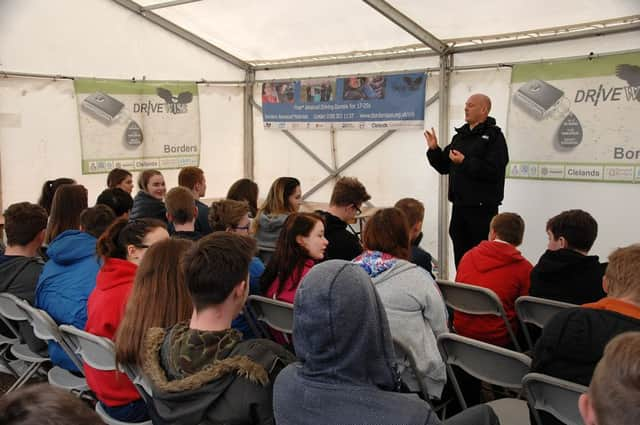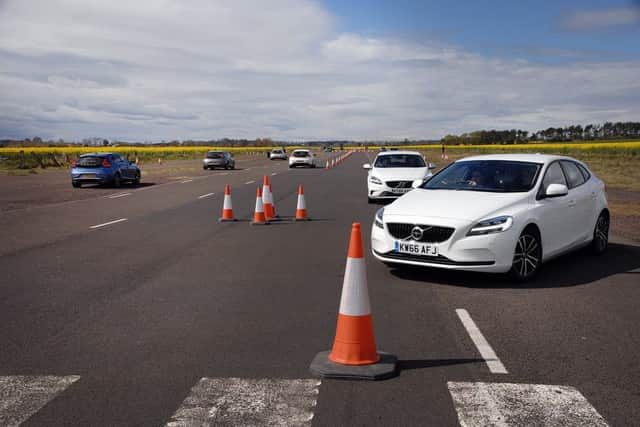Driver training part of school curriculum


More than 100 children, mainly aged 16, from the region’s nine secondary schools received driver training as part of the national curriculum for the first time through a two-day event at the former RAF airfield at Charterhall, near Greenlaw.
The youngsters took to the roads as part of a £73,000 initiative, which will involve more than 700 local 14 to 17-year-old school pupils over the course of the year.
Advertisement
Hide AdAdvertisement
Hide AdUnder the guidance of professionally trained advanced motoring instructors, the pioneering initiative assesses pupils’ awareness and attitudes towards driving throughybehind the wheel activites and discussions on the fundamentals of driving, including hazard perception and the highway code.


The programme is run by a Police Scotland, IAM RoadSmart, Scottish Fire and Rescue, Scottish Ambulance Service, and Scottish Borders Council in partnership with John Cleland, of Cleland of the Borders in Galashiels, who has invested in the new scheme and arranged for Volvo to provide cars for the training days.
The former professional driver and British Touring Car Champion has worked for a long time to get this sort of training onto the national curriculum.
He said: “The whole idea behind this is that in our region 17 to 25 year olds attribute to 25% of accidents and over 65s to another 25%. So we are aiming at both of these sections of the public.
Advertisement
Hide AdAdvertisement
Hide Ad“We have some of the best roads and the most beautiful scenery in the Borders. But they are also some of the most dangerous.


“If we can save one life why would we not pour money into something like this?
“The kids are loving it, they’ve been allowed behind the wheel of some brand new cars and given a shot at driving.”
Going forward Mr Cleland hopes to encourage even younger children to take part in the similar events planned over the coming year.
Advertisement
Hide AdAdvertisement
Hide Ad“We are going to have 14 and 15 year olds at the next session.
“It we can get the kids early enough they will realise that driving is fun, it is also dangerous but it doesn’t have to be.
“If we can get them to that age, when they come to 17 they will understand a lot more.
“I want to try some how to make sure that we save lives.
Police Scotland Chief Inspector Andy McLean added: “Today has been brilliant, it really has.
Advertisement
Hide AdAdvertisement
Hide Ad“For us the safety message is most important, but when we are engaging with the kids they are laughing and joking and any preconceived ideas of us go out the window. They are suddenly seeing past the uniforms.”
He added: “Getting young driver education into schools as part of the curriculum has been a long-term goal for everyone involved in the partnership.
“The new initiative gives young drivers the experience they need to survive the high-risk early months of solo driving, so anything we can do to provide them with these skills to make roads safer has to be welcomed.”
Sarah Sillars, IAM RoadSmart chief executive officer, added: “IAM RoadSmart has long campaigned for road safety to be a part of the national curriculum, and through this pioneering scheme in the Scottish Borders in partnership with Volvo’s Cleland of the Borders and the Scottish emergency services, it’s starting to happen.”
The Scottish Road Safety Framework’s grant will be enought to support the team to put on 14 day-long sessions with furthers days planned in June, July, September and October.